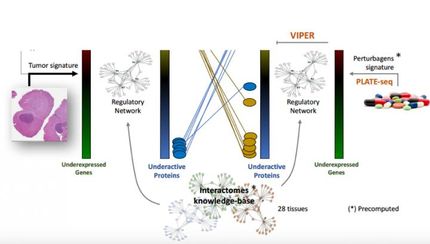Moffitt Cancer Center researchers design small molecule to disrupt cancer-causing protein
STAT3 protein's ability to cause malignancy is suppressed when neutralized by S31-1757
Advertisement
Researchers at Moffitt cancer Center and colleagues at the University of South Florida have developed a small molecule that inhibits STAT3, a protein that causes cancer. This development could impact the treatment of several tumor types, including breast, lung, prostate and others that depend on STAT3 for survival. The study appeared in the issue of Cancer Research.
"STAT3 has been associated with poor prognosis and resistance to chemotherapy in patients with cancer," explained Said M. Sebti, Ph.D., chair of the Drug Discovery Department at Moffitt. "Two STAT3 molecules need to bind to each other, a process called dimerization, to cause malignancy. We developed a small molecule called S3I-1757 to prevent dimerization by disrupting STAT3-STAT3 binding. Once disrupted, STAT3's ability to help cancer cells survive, grow and invade is neutralized."
"Activated STAT3 contributes to cancer at several levels," said study co-author Nicholas J. Lawrence, Ph.D., senior member of Moffitt's Drug Discovery Department. "It triggers the uncontrolled proliferation, invasion and spread of cancer cells. That makes STAT3 an attractive target for drug discovery and therapy."
STAT3 was first found to be involved in malignant transformation in 1995, but researchers have been unable to develop an inhibitor for the protein. In part, the challenge stemmed from the fact that STAT3-STAT3 binding is a protein-protein interaction involving a large surface area, difficult to target with drug-like small molecules.
The researchers, who had been working on finding an inhibitor for STAT3-STAT3 dimerization for some time, recently overcame that challenge and demonstrated in laboratory studies that S31-1757 was effective in neutralizing STAT3's activity.
"We used several approaches to demonstrate that S31-1757 is able to inhibit malignant transformation by its ability to inhibit the STAT3 function," Sebti said. "These included targeting the ability of STAT3 to bind itself."



























































